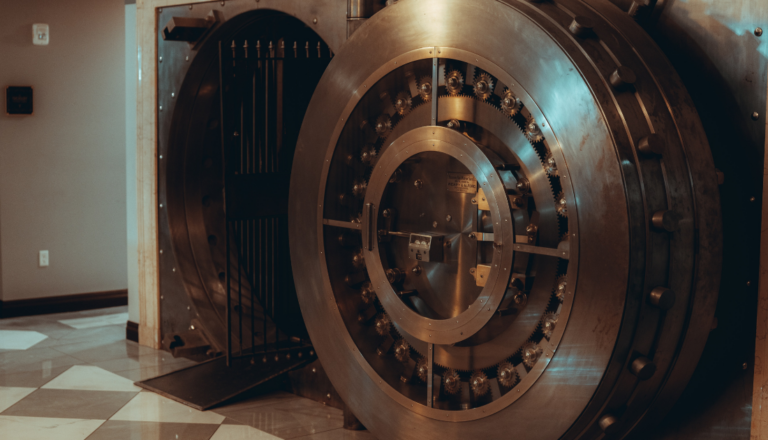Recent weeks have been tumultuous for some banks, leading to some concern among customers about the safety of their deposits. In the wake of two bank failures, it is natural to worry about the security of your funds, and you may have questions about what measures are being taken to protect your money.
In this article, we give you a brief overview of the recent events, how to know your funds are safe, and what Panacea is doing to protect your money.
Here’s What Happened
On Friday, March 10, bank regulators forced a shutdown of Silicon Valley Bank (SVB), the 16th largest bank in the U.S., due to their inability to meet deposit obligations. This marked the largest bank failure since 2008.
On Sunday, March 12, bank regulators shuttered Signature Bank, marking the third-largest bank failure in U.S. history. The federal government provided a full backstop on losses, ensuring that no depositor at either bank would lose any money.
How Did This Happen?
SVB had been the pillar of the tech and venture capital (VC) ecosystem. From 2018 to 2021, its VC banking clients were especially flush with cash and kept these deposits at SVB. The bank invested these excess deposits into longer-term securities that declined in value, due to rising interest rates.
Due to rising interest rates, VC customers began rapidly taking money out of SVB and sending it to other banks to find higher rates. This forced SVB to sell the previously purchased securities at a substantial loss in order to meet its deposit obligations, sparking a panic amongst the remaining deposit customers.
The failure of Signature Bank, a bank that worked primarily with tech and crypto, was a result of panic after the sudden collapse of SVB. Customers withdrew more than $10 billion in deposits following the first bank’s closing.
Is My Money Safe in a Bank?
The security of your money in a bank account is contingent on two primary factors: where it is and how much you have. Many banks are FDIC insured, meaning $250,000 per depositor, per issued bank, for each account ownership category is insured.
If your bank is FDIC insured and it fails, you will receive all of your money back up to the $250,000. If your bank is not FDIC insured, you won’t receive your money back. If your balance is greater than $250,000, any amount over that limit is not insured. If your bank fails, you may receive the amount over the limit back, but it is not guaranteed and may take some time.
Because of this, you want to be sure your money is at an FDIC member bank and your balance is less than the $250,000 threshold. If you have more than that limit, the next section details a simple way to secure it.
How Do I Protect My Money Over $250,000?
At FDIC member banks, your money is insured up to $250,000 per depositor, per issued bank, for each account ownership category, but what if you have more in your account than that and you want to be sure it is safe? Moving your money into multiple accounts at different financial institutions is one way to do this, but Panacea makes it easier.
We offer Insured Cash Sweep (ICS), which can secure balances up to $125,000,000 per tax ID, totally for free! This program divides your deposit balance between other ICS Network banks in amounts below the standard FDIC insurance maximum ($250,000).
We handle all of this for you, and you will still only work directly with us, rather than managing your accounts at multiple different banks. Learn more about this program here. Fill out the ICS form here.
Work With A Bank You Can Trust
Still feeling worried about your money being in a secure place? Finding a bank that is committed to providing superior service and having customers’ interests at heart could calm your fears.
At Panacea, we are focused on our customers first. That’s why we protect your deposits through FDIC insurance and ICS.
If you want to move your funds to a bank you can trust and take advantage of competitive savings rates, Panacea is able to help! Find our current personal high-yield savings account rates here, and our current business savings account rate here. These rates mean you can save more while knowing your money is safe. Learn more about our personal and business deposit accounts.
Panacea Financial is a division of Primis, Member FDIC.
- $25 minimum opening deposit. Cannot transfer balances from existing accounts. ATM Refunds of foreign transactions will be refunded within five business days after the statement cycle ends. External wire fees refunded up to $35 per wire for a wire over $10,000.
- APY = Annual Percentage Yield. The advertised APY is effective 2/23/2023 and subject to change thereafter. No minimum balance required to obtain the APY. The minimum to open a Panacea Savings Account is $25. Fees may reduce earnings. Offer is subject to change without notice and may be withdrawn at any time. Up to six transfers or withdrawals per statement cycle.
- FDIC Insurance limit is $250,000, per depositor, per ownership category.
Placement of your funds through the ICS service is subject to the terms, conditions, and disclosures set forth in the agreements that you enter into with us, including the ICS Deposit Placement Agreement. Limits and customer eligibility criteria apply. Program withdrawals are limited to six per month when using the ICS savings option. ICS, Insured Cash Sweep, and Bank Safe, Bank Smart are registered service marks of Promontory Interfinancial Network, LLC.

